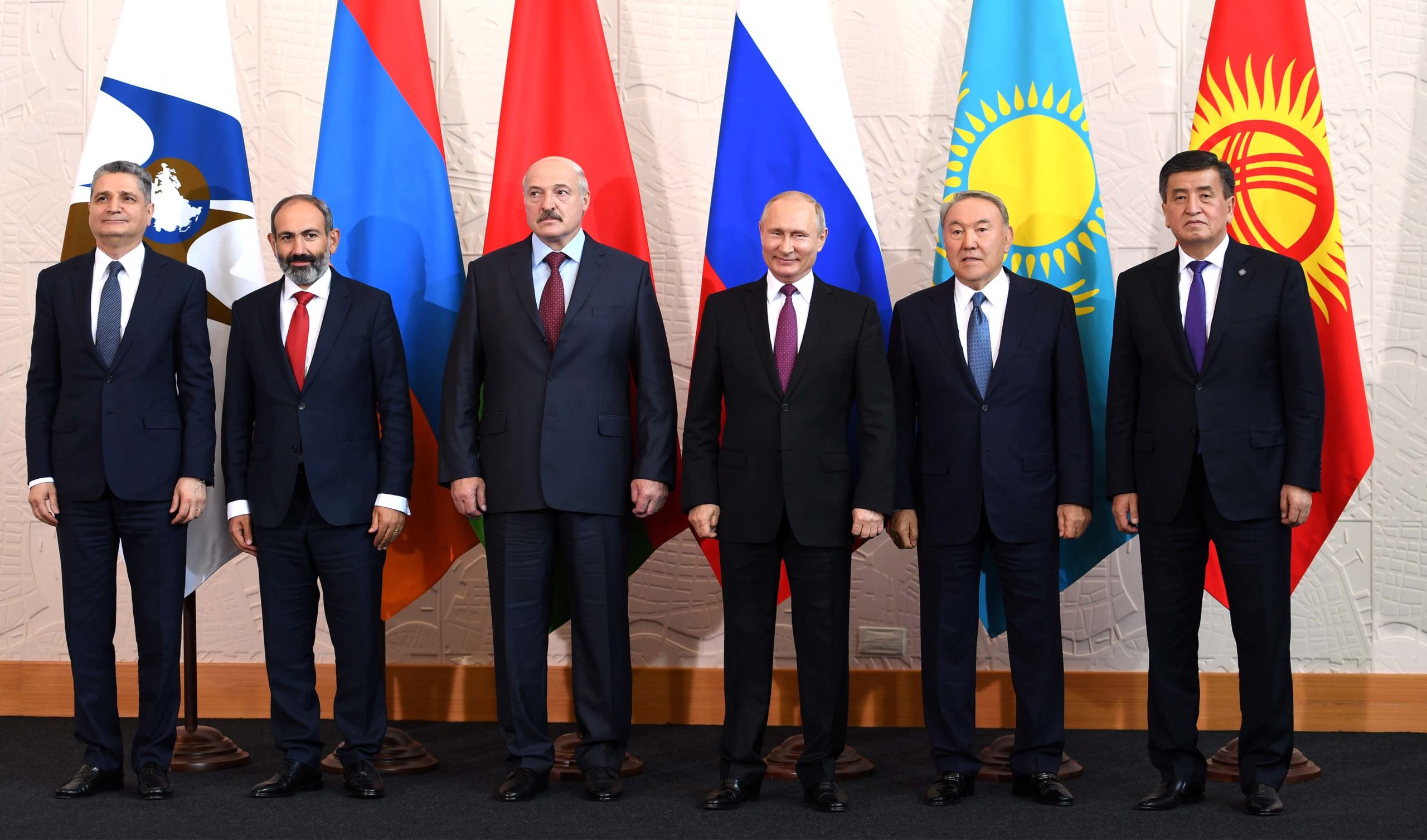

The Eurasian Economic Union will hold a summit in Bishkek today.
The EEU is an intergovernmental economic union made up of five post-Soviet states— Armenia, Belarus, Kazakhstan, Kyrgyzstan and Russia. The union aims to create a cooperative economic ground for the members and encourage free trade. Today, the member state representatives will convene in Kyrgyzstan’s capital to discuss an array of topics ranging from the integration of the Eurasian space to the future outlook of the union.
While the EEU’s relevance has been deeply tarnished since Russia’s invasion of Ukraine, Russia has long viewed the union as a means to sustain its influence over the post-Soviet member states. In an attempt to compensate for its failing military invasion in eastern Ukraine, and to maintain its slipping political influence in Central Asia and the Caucasus, Moscow will strive to solidify the partnership amongst member states. Expect the trade volume amongst member-states to further increase during the short-to medium term, especially in areas concerning tech. Despite all efforts, the EEU will have a very minimal impact towards supporting the Russian economy in the light of Western sanctions.
Can is a Publisher and Analyst with Foreign Brief and currently pursuing his PhD in the Department of History at Bighampton University. His research there primarily focuses on the 19th-century Balkan independence movements.
